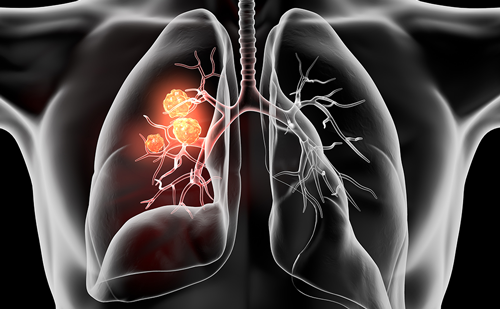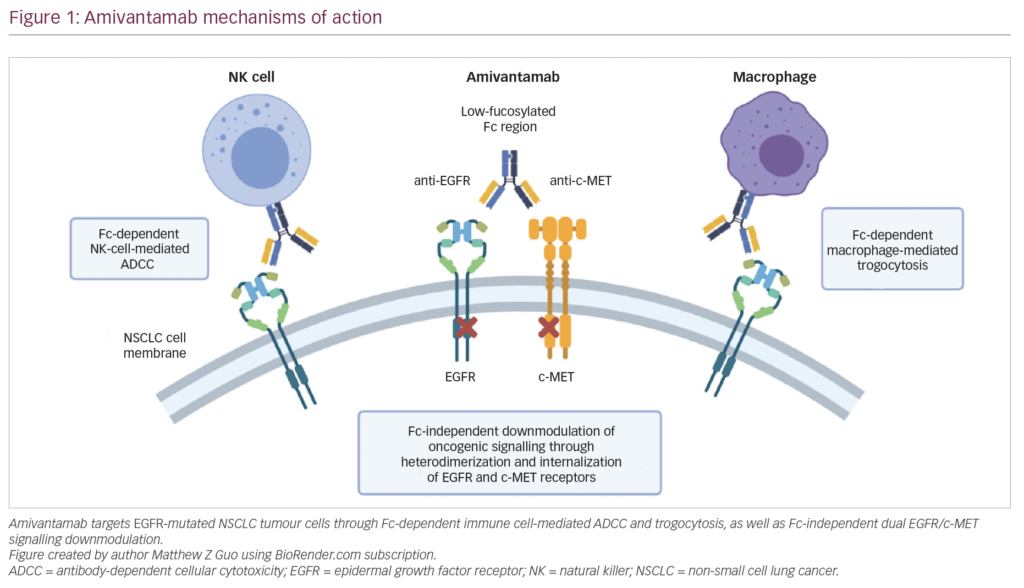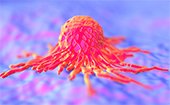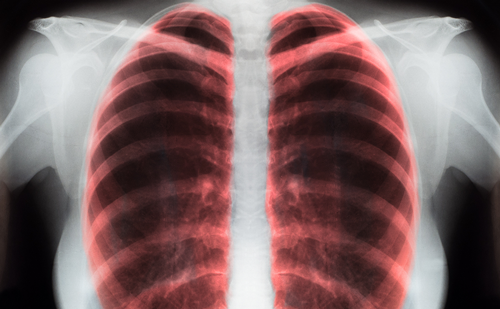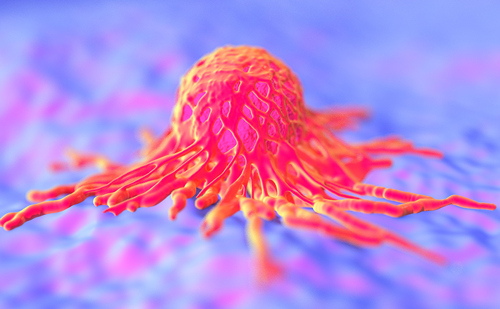Until recently, the standard of care for patients with stage III (locally advanced), unresectable non–small cell lung cancer (NSCLC) was platinum-based, doublet chemotherapy together with radiotherapy (chemoradiotherapy).1 However, long-term outcomes for these patients is poor, with 5-year survival rates ranging between 15–25%, while long-term survival data are rarely reported.2 Immune checkpoint inhibitors targeting programmed death-1 (PD-1) and its ligand (PD-L1) have shown great promise in the treatment of advanced NSCLC.3 In 2017, results from the phase III PACIFIC trial have shown that durvalumab, a selective, monoclonal antibody that blocks PD-L1 binding to PD-1 and CD80, allowing T cells to recognize and kill tumor cells, improved progression-free survival compared with placebo after concurrent chemoradiation therapy in patients with stage III, unresectable NSCLC.4 Recently published results from the PACIFIC trial show that the use of durvalumab also confers an overall survival (OS) advantage.5
Q. What did the updated results of the PACIFIC trial tell us about overall survival with durvalumab and how are these likely to impact on the standard of care for stage III NSCLC?
The OS results demonstrated a clear and substantial advantage for the use of durvalumab after concurrent chemoradiotherapy versus standard of care.5 This has unequivocally changed the standard of care for patients with stage III NSCLC. At 2 years, OS for those treated with durvalumab was 66% versus 56% for standard of care. This advantage was present throughout the entire period of the trial, and both survival curves appear to plateau at 3 years.
Q. How did PD-L1 expression influence response to durvalumab?
PD-L1 testing was not required and results were not available for 37% of patients. A pre-specified cut off of <25% benefitted in terms of progression-free survival (PFS), but not OS. An unplanned analysis that looked at <1% expression did not demonstrate a PFS or OS advantage, while 1–24% demonstrated PFS and likely OS benefit. Given the incomplete data set, use of an unusual cut-off point in the pre-planned analysis, etc., I would not utilize PD-L1 as a criterion for treatment with durvalumab at this time.
Q. What further studies are needed to optimize therapy with durvalumab?
The PACIFIC study raises numerous questions regarding the role of immunotherapy in stage III disease. Should immunotherapy be employed concurrent with chemoradiotherapy? What is the optimal duration of immunotherapy? Is there an optimal chemotherapy regimen? How do we identify patients most likely to respond to durvalumab based on molecular phenotypes? Some of these questions are now being addressed in prospective trials (for example, ClinicalTrials.gov Identifiers: NCT03631784, NCT03693300 and NCT02621398).
Q. What are the current obstacles to the widespread use of immunotherapy in NSCLC?
Within the US, there are probably few obstacles to the use of immunotherapy as it is supported by National Comprehensive Cancer Network guidelines and a US Food and Drug Administration indication. In other countries, the cost of these therapies may limit availability. Although these agents have promising clinical activity, response rates still remain low except for tumors expressing PD-L1 at high levels. There is a need for clinically useful biomarkers to identify which patients are most likely to respond to treatment. We also need further studies evaluating novel combinations combining PD-1 or PD-L1 inhibitors with other agents such as chemotherapy, radiation, and other immunotherapeutic agents. Another potential barrier to widespread use of immunotherapy has been a concern about toxicities, but these are generally manageable.
Q. What do you expect to be the next major developments in immunotherapy for NSCLC?
There are numerous trials currently underway to assess the value of new immunotherapy combinations designed to overcome resistance to current agents. For example, the POSEIDON phase II study (ClinicalTrials.gov Identifier: NCT03164616) is evaluating the combination of durvalumab and tremelimumab with chemotherapy in patients with metastatic NSCLC. The use of low-dose combination checkpoint inhibition with nivolumab and ipilimumab appears to be a promising approach. The CheckMate 9LA (ClinicalTrials.gov Identifier: NCT03215706),6 CheckMate 227 (ClinicalTrials.gov Identifier: NCT02477826)7 and CheckMate 722 (ClinicalTrials.gov Identifier: NCT02864251)8 studies are investigating the combination of nivolumab and ipilimumab with chemotherapy in various treatment settings. The KEYNOTE 021 trial (ClinicalTrials.gov Identifier: NCT02039674)9 will focus on pembrolizumab plus ipilimumab, as well as the combined use of pembrolizumab with one or more standard chemotherapy agents. Hopefully, one or more of these studies will be positive. Another interesting question is whether durvalumab or other PD-1/L1 antibodies could be useful in earlier settings. The IONESCO trial (ClinicalTrials.gov Identifier: NCT03030131)10 is evaluating neoadjuvant therapy with durvalumab in early stage (I-IIIA) NSCLC.





